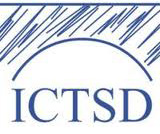 When the WTO agreements entered into force in 1995, least developed countries (LDCs) were given until 1 January 2006 to implement the obligations contained in the then-newly adopted TRIPS Agreement. In 2002, the LDC transition period was extended until 2016 for pharmaceutical patents, with a later decision in 2005 extending the period for all intellectual property rights until July 2013. The 2005 decision also had a “no roll back provision” providing that LDCs should not implement policies during the transition period with a “lesser degree of consistency with the provisions of the TRIPS Agreement.”
When the WTO agreements entered into force in 1995, least developed countries (LDCs) were given until 1 January 2006 to implement the obligations contained in the then-newly adopted TRIPS Agreement. In 2002, the LDC transition period was extended until 2016 for pharmaceutical patents, with a later decision in 2005 extending the period for all intellectual property rights until July 2013. The 2005 decision also had a “no roll back provision” providing that LDCs should not implement policies during the transition period with a “lesser degree of consistency with the provisions of the TRIPS Agreement.”
In light of the impending deadline, on November 5, 2012, Haiti on behalf of WTO LDC Members requested a further extension of the transition “for as long as the WTO Member remains a least developed country.” The extension request is stated unconditionally in the sense that it does not incorporate a no-rollback commitment similar to that embodied in the 2005 extension. At the request of Nepal on behalf of LDC Members, this proposal was discussed at the TRIPS Council meeting of March 5-6, 2013.
While most countries agree in principle with an extension, there are disagreements about the modalities of such a measure including its time frame and scope. In response to the request made by LDC members, some countries have proposed a limited extension and inclusion of a “no-rollback” clause.
This Policy Brief prepared by Frederick M. Abbott, Edward Ball Eminent Scholar Professor of International Law, Florida State University College of Law, USA, considers the technicalities of the no-rollback issue bearing in mind the legislative history of the TRIPS Agreement and its implications for LDCs. One concluding observation is that the central concern for LDCs is promoting the creation of their technological base. “As internal technological capacity strengthens, the adoption and implementation of TRIPS-consistent rules may be a consequence, but it is not the end in itself.”
The policy brief is available here.




